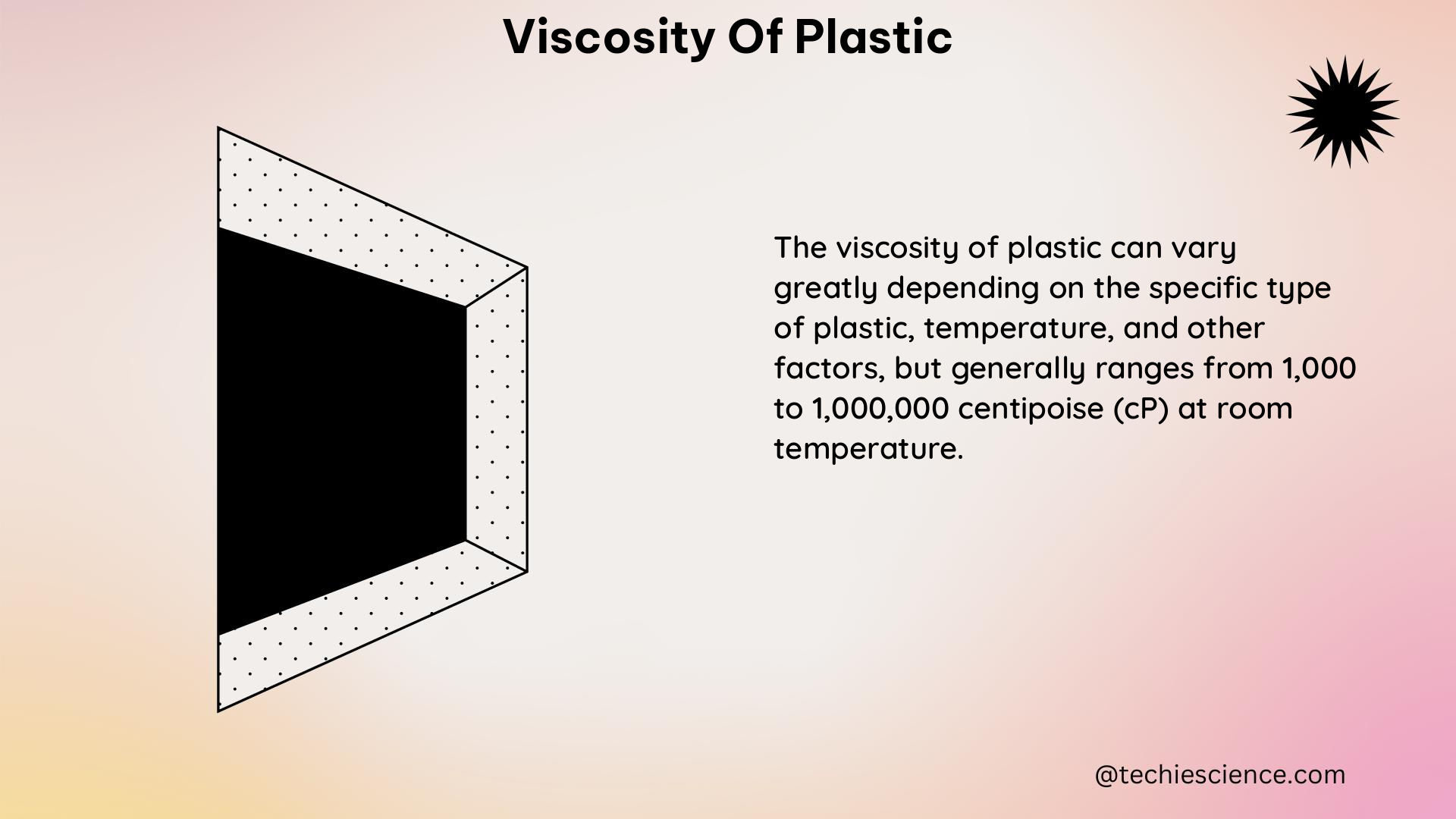Viscosity is a crucial property of plastics that determines their flow behavior and processing characteristics. Understanding and accurately measuring the viscosity of plastic materials is essential for ensuring proper processing, performance, and quality control. In this comprehensive guide, we will delve into the intricacies of plastic viscosity, exploring the factors that influence it, the measurement techniques, and the practical applications in the plastics industry.
Understanding Plastic Viscosity
Plastic materials exhibit a non-Newtonian, pseudo-plastic behavior, meaning that their viscosity decreases as the shear rate increases. This behavior is primarily influenced by two key factors:
- Temperature: As the temperature of the plastic melt increases, the viscosity decreases, allowing for easier flow and processing.
- Shear Rate: The viscosity of plastics is highly dependent on the shear rate applied during processing. Higher shear rates lead to a decrease in viscosity, enabling better flow and improved mold filling.
The relationship between viscosity, temperature, and shear rate can be described by the Carreau-Yasuda model, which is widely used in the plastics industry:
η = η₀ / [1 + (λ * γ̇)^a]^((n-1)/a)
Where:
– η is the viscosity of the plastic melt
– η₀ is the zero-shear viscosity
– λ is the relaxation time
– γ̇ is the shear rate
– a and n are dimensionless model parameters
Understanding this relationship is crucial for predicting the flow behavior of plastics during various processing techniques, such as injection molding, extrusion, and thermoforming.
Measuring Plastic Viscosity

To accurately measure the viscosity of plastics, two primary methods are commonly used:
1. Capillary Rheometry
Capillary rheometry is a widely accepted method in the plastics industry for material comparison and characterization. It involves measuring the pressure drop across a capillary die as a function of the flow rate, which can then be used to calculate the viscosity of the material. This method provides valuable information about the shear-dependent viscosity of the plastic melt.
However, capillary rheometry has some limitations, such as the inability to measure viscosity accurately with fiber-reinforced plastics and the potential for thermal degradation due to long residence times in the barrel.
2. Injection Molding Rheometry (IMR)
Injection Molding Rheometry (IMR) utilizes a standard injection molding machine to prepare the plastic melt with a near-identical thermal and shear history to what it would experience during the actual production process. This method allows for the measurement of viscosity at higher shear rates, providing more comprehensive information about the material’s behavior under different temperature and shear rate conditions.
IMR is more relatable to the injection molding process and gives more accurate predictions of the viscosity of a material at a given temperature and shear rate, making it a valuable tool for process optimization and quality control.
3. Ultrasonic Pulse Echo Methods
In addition to the traditional rheometric techniques, ultrasonic pulse echo methods can also be used to measure the density and viscosity of polymer melts. These methods are capable of performing online measurements during the extrusion process, which is crucial for process automation, monitoring, and control.
The advantage of this technique is that it can simultaneously measure the sound velocity and attenuation in the plastic melt, providing more comprehensive information about the material’s behavior. This includes the use of polarized shear waves, longitudinal waves, torsional waves, and other wave types across a wide frequency range.
Practical Applications of Plastic Viscosity Measurement
Accurate measurement and understanding of plastic viscosity have numerous practical applications in the plastics industry:
- Process Optimization: Viscosity data is essential for optimizing processing parameters, such as temperature, shear rate, and pressure, to ensure efficient and consistent production.
- Quality Control: Monitoring the viscosity of plastic melts during production helps maintain product quality and consistency, as well as detect any potential issues or variations in the material.
- Material Selection: Viscosity data is a crucial factor in selecting the appropriate plastic material for a specific application, ensuring the desired flow and processing characteristics.
- Troubleshooting: Analyzing the viscosity behavior of a plastic material can help identify and address issues during processing, such as mold filling problems, surface defects, or part warpage.
- Recycling and Compounding: Understanding the viscosity of recycled or compounded plastic materials is essential for ensuring their compatibility and processability in new applications.
Conclusion
Mastering the viscosity of plastics is a critical aspect of the plastics industry, as it directly impacts the processing, performance, and quality of plastic products. By understanding the factors that influence plastic viscosity, utilizing advanced measurement techniques, and applying this knowledge in practical applications, plastics professionals can optimize their processes, enhance product quality, and stay ahead in the competitive market.
References:
- Rita Kol, Tobias De Somer, Dagmar R. D’hooge, Fabian Knappich, Kim Ragaert, and Dimitris S. Achilias. State-Of-The-Art Quantification of Polymer Solution Viscosity for Plastic Waste Recycling. ACS Sustainable Chemistry & Engineering, 2021, 9 (3), pp 843-858. DOI: 10.1021/acssuschemeng.0c06977.
- Measuring Viscosity: Capillary Rheometer vs. Injection Molding Rheometer. BAP Molding. https://www.bapmolding.com/measuring-viscosity-capillary-rheometer-vs-injection-molding-rheometer/
- R. Kažys and R. Rekuvienė. Viscosity and density measurement methods for polymer melts. Ultrasound Research Institute, Kaunas University of Technology, Studentų Str. 50, 51368 Kaunas, LITHUANIA, Phone: +370 37 351162, Fax. +370 37 451489 E-mail: [email protected].

The lambdageeks.com Core SME Team is a group of experienced subject matter experts from diverse scientific and technical fields including Physics, Chemistry, Technology,Electronics & Electrical Engineering, Automotive, Mechanical Engineering. Our team collaborates to create high-quality, well-researched articles on a wide range of science and technology topics for the lambdageeks.com website.
All Our Senior SME are having more than 7 Years of experience in the respective fields . They are either Working Industry Professionals or assocaited With different Universities. Refer Our Authors Page to get to know About our Core SMEs.